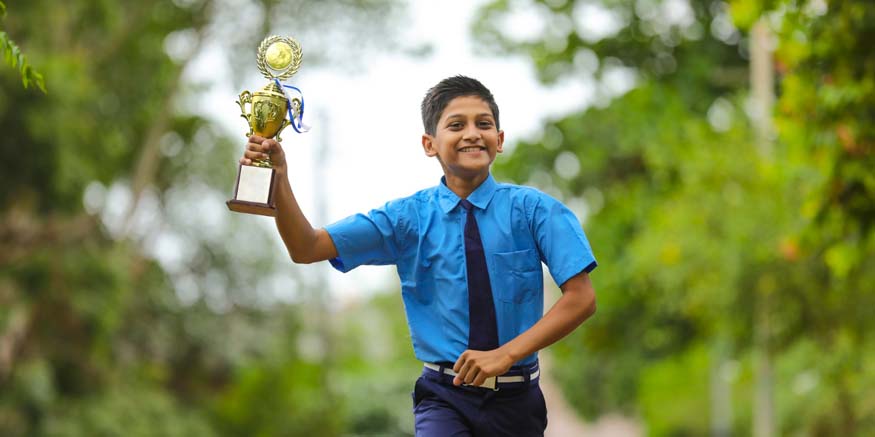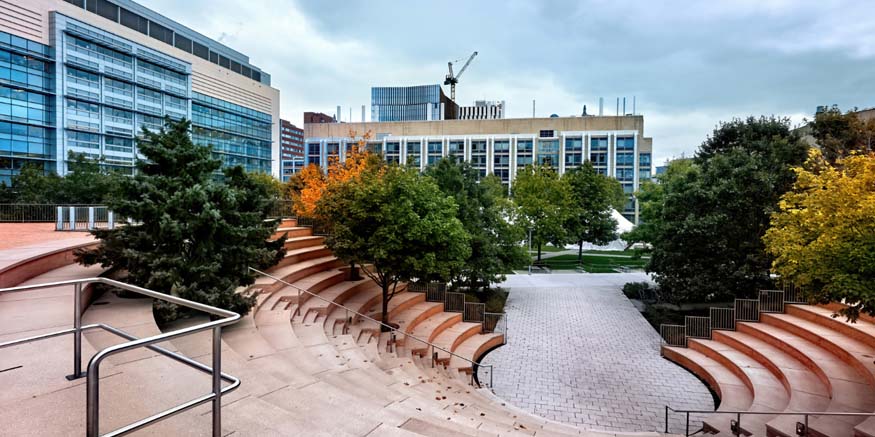Embarking on the journey to higher secondary education is akin to setting out on an adventure, filled with both challenges and triumphs. This significant period is not just about academic growth; it also involves substantial personal and intellectual development. Here’s a comprehensive guide to preparing for higher secondary education, focusing on both academic readiness and the importance of extracurricular activities.
Academic Preparedness
Building a Solid Foundation
Establishing a strong groundwork in fundamental subjects such as mathematics, science, and languages is crucial. This involves more than just surface-level understanding; it requires a deep absorption of core concepts that will serve as the basis for more advanced learning. Achieving a thorough comprehension that goes beyond mere memorisation is essential for long-term academic success.
Also read: Importance & Benefits of ExtraCurricular Activities for Students
Cultivating Effective Study Habits
Effective study habits go beyond simply spending hours with textbooks. It’s about creating an environment conducive to learning by selecting suitable study areas, minimising distractions, and establishing routines that ensure regular and productive study periods. Developing disciplined study habits is vital for maintaining consistent academic performance over time.
Mastery of Time Management
Mastering time management is a skill that extends beyond academics. It involves more than just allocating time for study; it requires recognising peak productivity periods, knowing when to take breaks, and creating a schedule that balances all responsibilities. Effective time management is crucial for overcoming the challenges of higher secondary education.
Extracurricular Activities: Beyond the Books
Extracurricular activities are not merely breaks from academic work; they play a significant role in holistic development. These activities provide real-life experiences that complement academic knowledge, fostering a well-rounded educational journey.
Discover and Try New Things
Students are encouraged to explore a wide range of interests, stepping out of their comfort zones and discovering hidden talents. Embracing new activities leads to significant personal growth and development.
Skills Learned Outside the Classroom
Extracurricular activities offer valuable skills that are essential for future success and personal growth. These include teamwork, leadership, and time management. These life skills go beyond classroom boundaries and play a crucial role in shaping an individual’s journey.
Also read: Balancing Extracurricular Activities and Schoolwork
Embracing Activity Diversity
Engaging in a variety of activities enriches the educational experience. Instead of focusing on just one or two interests, students should explore multiple hobbies and activities to enhance their higher education journey.
Balancing Academic and Extracurricular Commitments
Finding the Right Mix
Striking a balance between academic endeavours and extracurricular activities is an art. It involves understanding the ebb and flow of commitments, knowing when to prioritise studies, and when to indulge in extracurricular pursuits. Achieving this balance is crucial for overall success.
Crafting a Structured Schedule
Creating an organised timetable is essential for effective time management. This involves careful planning, setting time blocks for various activities, and ensuring every aspect of a student’s life receives adequate attention.
Prioritising Tasks for Success
Knowing which tasks to prioritise is a life skill that goes beyond academics. Recognising the importance of deadlines and prioritising tasks accordingly is key to achieving success.
The Importance of Time Management
Time Management Matters
Understanding the value of time goes beyond meeting deadlines. Mastering time management impacts academic performance, personal growth, and overall productivity.
Effective Tools for Time Management
Utilising digital apps or planners is a strategy for effective organisation. Exploring various tools and techniques equips students with practical resources for efficient learning.
Breaking Down Academic Tasks
Breaking down extensive assignments into manageable tasks not only saves time but also reduces stress. This approach makes work more manageable and promotes strategic task management.
Also read: The Role of Extracurricular Activities in CBSE Schools
Achieving Academic Goals
Setting Academic Goals
Setting objectives is a habit everyone should develop. This method explores the unique aspects of goal-setting, tracking progress, and celebrating achievements, fostering a lifelong commitment to learning and personal development.
Seeking Guidance and Support
Learning from Teachers’ Wisdom
Teachers are invaluable mentors and guides. Students should leverage their knowledge and seek their advice, benefiting from their experience and insights.
Mentoring and Advice
Seeking mentorship or professional advice is valuable for navigating the challenges of higher secondary education. Establishing a supportive guidance system is crucial for success.
Supportive Community Building
Building a supportive school community is essential for success. Engaging with peers and forming connections provides a network for discussing issues, gaining support, and feeling a sense of belonging.
Taking on and Rising Above Obstacles
Building Up Your Strength
Developing resilience is crucial for overcoming obstacles. This involves cultivating a mindset that views setbacks as opportunities for growth and learning.
Learning from Tough Times
Overcoming challenges is a step towards success. Embracing difficulties fosters personal growth and lays the foundation for future achievements.
Conclusion
Balancing extracurricular activities and academics is essential for managing higher secondary education. Students can build the necessary skills and achieve overall development for future success by giving both their complete attention.
EuroSchool’s Commitment
EuroSchool excels in both academic and extracurricular activities, creating a strong foundation in key subjects like mathematics, science, and languages. We encourage disciplined study habits, holistic development, and prepare students for higher secondary education with essential skills and character-building experiences.
For more such informative blogs, visit EuroSchool.









